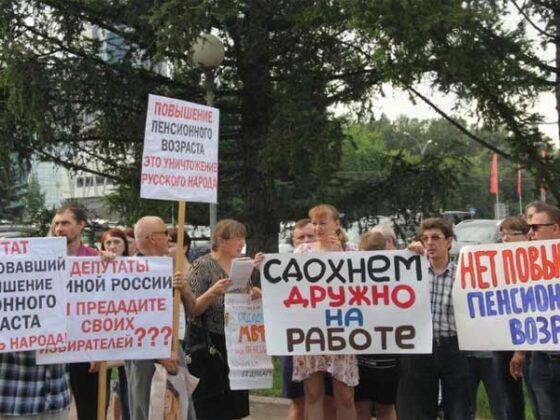(Wall Street Journal) After Boris Yeltsin’s resignation in December 1999, Vladimir Putin became acting president of the Russian Federation ahead of being elected outright the following spring. Four American presidents–Bill Clinton, George W. Bush, Barack Obama and now Donald Trump–have since tried to fathom his intentions and respond to his domestic and foreign-policy moves. They would all have benefited–or could benefit today–from “The Code of Putinism.”
Brian D. Taylor, a political-science professor at Syracuse University, has written a close, often sorrowful analysis of Mr. Putin’s evolving beliefs about Russia and its place in the world. Based on Russian and Western sources, along with many interviews, “The Code of Putinism” provides a sober-minded account of how Mr. Putin came to lead Russia and why his almost czar-like role today bodes ill for Russia’s future.
– – – – –
By Joshua Rubenstein (July 15)
Mr. Taylor rejects the idea that Russia is “cursed by nature” and “doomed by history and culture.” He quotes a column in the Ottawa Citizen making such claims when Mr. Putin first became president, and it has become a common sentiment in the West. But in the 1990s, Mr. Taylor notes, Russia under Yeltsin “had a political system with elements of both democracy and authoritarianism, . . . elections were generally competitive, television was not controlled by the Kremlin, regional governors had real, independent power, . . . and nongovernmental organizations had plenty of room to organize, including in opposition to the state.”
The population, though, suffering from dizzying political and economic dislocation after the Soviet Union imploded, came to associate democratic reform with corruption, crime and the questionable amassing of untold wealth by a small group of “oligarchs” who had gained control of the country’s oil, gas and mineral reserves. Yeltsin had democratic instincts, but his overtly drunken behavior and the first war in Chechnya, which he initiated and which Russian forces pursued in a brutal manner, undermined public confidence in the government. All this helped to make Mr. Putin, with his promise of a more competent Kremlin, a welcome successor to Yeltsin. The unexpected rise in oil prices in the early 2000s reinforced his popularity. Mr. Taylor reminds us that between 2004 and 2014 Russia benefited from “4 trillion dollars in export revenues.” […]
Read More © Wall Street Journal (subscription required)











